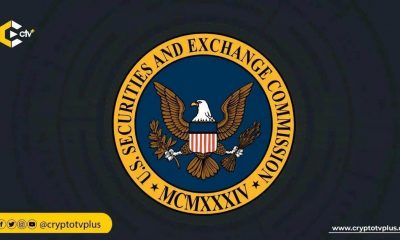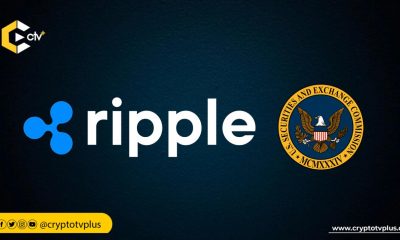News
US GAO advises SEC on Bitcoin ETF approval; provides three recommendations

The U.S. Government Accountability Office (GAO) recently provided several recommendations to the Securities and Exchange Commission (SEC) before approving spot Bitcoin exchange-traded funds (ETFs.
The GAO found that, although the SEC’s Office of Emerging Technologies (OET) is responsible for monitoring the risks and benefits of digital assets, it is not equipped to effectively regulate the industry.
The U.S. GAO recommended three key actions for the SEC to take before approving a spot Bitcoin ETF on Jan.10. Similarly, the GAO’s recommendations were specifically focused on how the SEC would manage its workforce in the context of the emerging digital asset market. Meanwhile, the GAO’s recommendations were sent to the SEC on Dec. 15 and made public on Jan. 16.
Additionally, the GAO report also made several recommendations regarding the SEC’s FinHub, responsible for engaging with crypto and fintech innovations. The GAO recommends that the SEC establish policies and procedures for the FinHub, create performance goals and measures for the hub, and develop a new workforce plan that incorporates the hub’s mission.
The GAO is an independent, nonpartisan audit institution of the U.S. federal government within the legislative branch that offers auditing, evaluative, and investigative services for the U.S. Congress.
According to the GAO, the SEC has 116 employees whose primary responsibility is working on matters related to crypto assets. While the GAO report noted that the SEC has not developed a new workforce plan since its 2019–2022 strategy, the report did not provide any specific details on why the SEC has not updated its plan.
The GAO noted that updating the workforce plan would be beneficial for the SEC, as it would help the agency meet its future needs and carry out its duties related to crypto assets. The GAO’s report also highlighted the fact that the SEC’s FinHub does not have documented policies, procedures, or performance goals, which could limit the effectiveness of the hub.
However, the GAO report noted that while FinHub has certain processes in place, such as meetings with market participants, it does not have formalized policies and procedures to support internal controls.
Based on its assessment, the GAO made three specific recommendations to the SEC:
- The SEC chief should ensure that the chief human capital officer prepares a new workforce planning strategy aligned with the agency’s 2022–2026 strategic and performance plans.
- The SEC chief should ensure the FinHub director documents the policies and procedures supporting its internal controls.
- The chair of the SEC should ensure that the FinHub director develops performance goals and measures that are objective, measurable, and targeted.
The GAO has included a “Status” section for each of its recommendations to track whether the SEC has taken appropriate action to implement the recommendations.
On Jan. 10, 2023, the SEC made history by approving 11 applications for spot Bitcoin ETFs.
The approval of the spot Bitcoin ETF applications was not unanimous, with three commissioners voting in favor and two commissioners voting against.
In what was a historic moment for the U.S. crypto industry, SEC Chair Gary Gensler cast the tie-breaking vote in favor of approving the first spot Bitcoin ETFs in the U.S. after nearly a decade of rejections.
Peter Schiff, a well-known gold bug and Bitcoin critic, has commented on the SEC’s approval of the first spot of Bitcoin ETFs, saying that SEC Chair Gary Gensler was “backed into a corner” on the issue.
However, Schiff also warned that, while the approval of the spot Bitcoin ETFs was a positive development for the crypto industry, Gensler may soon introduce new regulations that could negatively impact the price of Bitcoin.
Following the SEC’s approval of the spot Bitcoin ETFs, the approved funds started publicly trading the very next day, on Jan. 11. According to CoinShares data, the first day of trading saw volumes of over $2 billion across the various ETFs.
Read also: Solana-based Jupiter confirms token release date
























